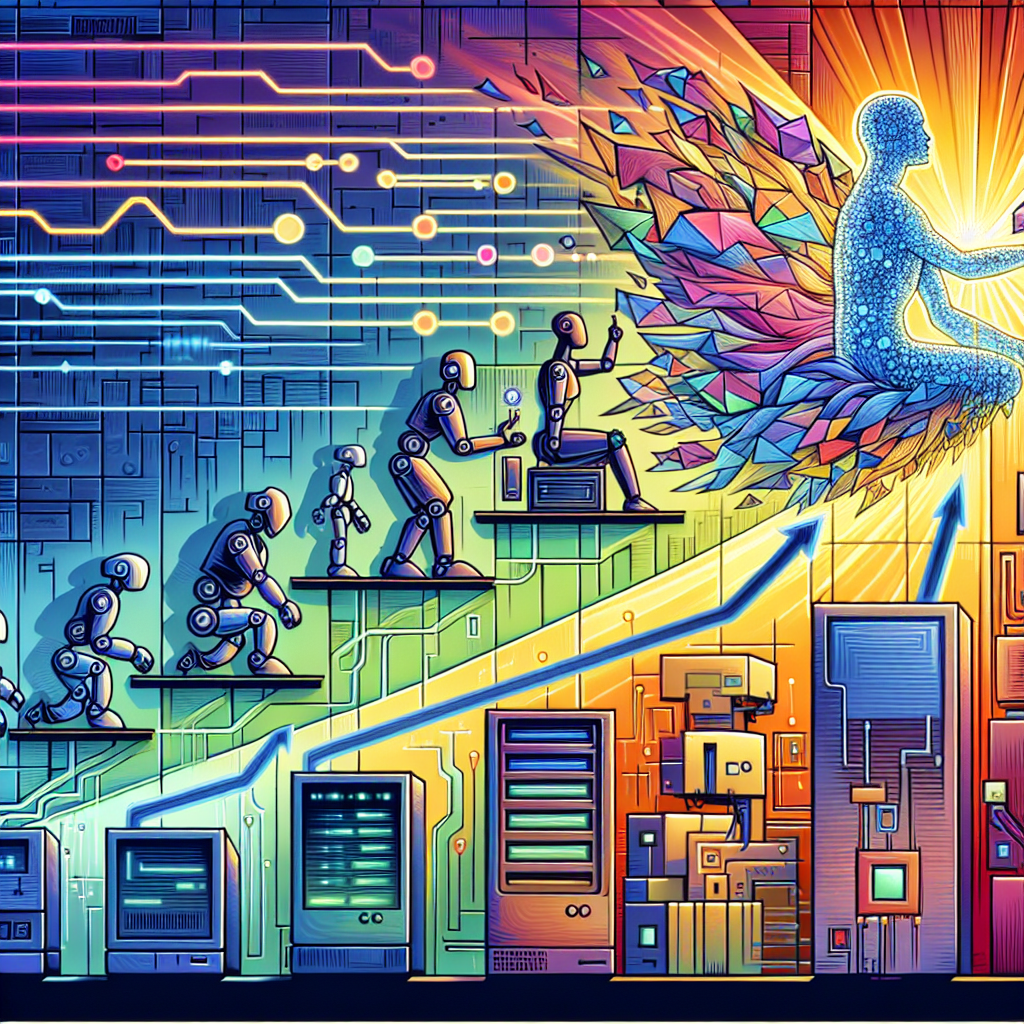The Democratization of AI: A Catalyst for Change
Artificial Intelligence (AI) has long been a topic of fascination and concern for many. From science fiction movies depicting a future where robots take over the world, to real-world applications that are transforming industries and changing the way we live and work, AI has captured the imagination of people around the globe. However, one aspect of AI that is often overlooked is its democratization – the idea that AI should be accessible to everyone, not just a select few.
The democratization of AI is a powerful force for change, enabling individuals and organizations to harness the power of AI to drive innovation, solve complex problems, and create new opportunities. By making AI more accessible and affordable, we can empower a diverse range of people to use AI to drive positive change in their lives and communities.
What is the Democratization of AI?
The democratization of AI refers to the movement to make AI more accessible to a broader audience, beyond just large corporations and tech giants. This includes making AI tools and technologies more affordable, easier to use, and available to a wider range of people with varying levels of technical expertise.
Why is the Democratization of AI Important?
The democratization of AI is important for several reasons:
1. Empowering individuals and small businesses: By making AI more accessible, individuals and small businesses can leverage AI tools to drive innovation, improve efficiency, and compete with larger organizations. This levels the playing field and enables a more diverse range of people to benefit from AI technology.
2. Driving innovation: By democratizing AI, we can unlock the creative potential of a broader range of individuals and organizations, leading to new ideas, products, and services that can drive economic growth and societal progress.
3. Solving complex problems: AI has the potential to help us solve some of the most pressing challenges facing society today, such as climate change, healthcare, and poverty. By democratizing AI, we can empower more people to use AI to tackle these complex problems and create positive change.
4. Ensuring ethical use of AI: By making AI more accessible, we can ensure that a diverse range of voices and perspectives are represented in the development and deployment of AI technologies. This can help to prevent biases and ensure that AI is used in a responsible and ethical manner.
How is AI being Democratized?
There are several ways in which AI is being democratized:
1. Open-source AI tools: Many AI tools and technologies are now available as open-source software, meaning that anyone can access and use them for free. This has helped to lower the barrier to entry for individuals and organizations looking to leverage AI technology.
2. Cloud-based AI services: Cloud computing platforms such as Amazon Web Services (AWS), Microsoft Azure, and Google Cloud Platform offer AI services that can be accessed on a pay-as-you-go basis. This makes it easier and more affordable for businesses of all sizes to use AI technology.
3. AI education and training: There are now a wide range of online courses, tutorials, and resources available to help people learn about AI and develop the skills needed to work with AI technology. This has helped to democratize AI by enabling more people to gain the knowledge and expertise needed to use AI effectively.
4. AI marketplaces: There are now online marketplaces where individuals and organizations can buy and sell AI models, datasets, and algorithms. This has helped to democratize AI by making it easier for people to access and use AI technology without having to build everything from scratch.
FAQs
Q: What are some examples of how AI is being democratized?
A: Some examples of how AI is being democratized include open-source AI tools such as TensorFlow and PyTorch, cloud-based AI services like Amazon SageMaker and Azure Machine Learning, AI education platforms like Coursera and Udacity, and AI marketplaces such as Algorithmia and DataRobot.
Q: How can individuals and small businesses benefit from the democratization of AI?
A: Individuals and small businesses can benefit from the democratization of AI by using AI tools to drive innovation, improve efficiency, and compete with larger organizations. They can also use AI to solve complex problems, create new products and services, and drive economic growth.
Q: What are some potential challenges of the democratization of AI?
A: Some potential challenges of the democratization of AI include concerns about data privacy and security, the risk of bias in AI algorithms, the need for more education and training in AI, and the potential for job displacement as AI technology becomes more widespread.
In conclusion, the democratization of AI is a powerful force for change that has the potential to transform industries, drive innovation, and create new opportunities for individuals and organizations around the world. By making AI more accessible and affordable, we can empower a diverse range of people to use AI to drive positive change in their lives and communities. As AI continues to evolve and become more integrated into our daily lives, the democratization of AI will play a key role in shaping the future of technology and society.

